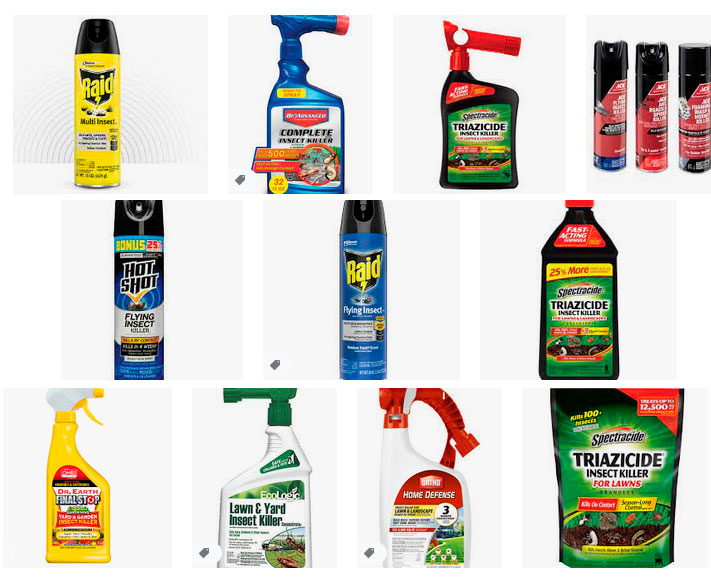Indoor/Outdoor Insecticides – Are they safe to use?
Insecticides are insect killers that are may be natural or artificial chemical-based substances. They are normally used to kill different insects at indoor or outdoor plants, crops, house plants, and trees.

Main Ingredients of Chemical Insecticides:
- Allethrin
- Bifenthrin
- Boric acid
- Cyfluthrin
- Cypermethrin
- D-limonene
Main Ingredients of Organic Insect Killers
Natural/organic insect killers are made from:
- Plants and their different parts such as leaves, bark, seeds, roots Neem, Pyrethrin, etc.
- Animal waste and remaining such as blood, urine, stool, and bones.
- Micro-organisms, bacteria, and fungi.
- Fruits, vegetables, and spices such as Garlic, and red chilies.
Classification of Insecticides
- Residual insecticides
They are effective for several weeks after the treatment.
- Commercial/Non-residual
They are effective at the time of treatment.
Most chemical-based insecticides are used by farmers and gardeners but after their environmental degradation effects, now the world is turning its interests towards organic insecticides. According to World Food and Agriculture Organization (FAO) insecticides and pesticides used have increased from 300% to 700% only by farmers. This excessive use has arisen certain alarming questions in environmentalists that whether the use of insect killers in outdoor plants or indoor plants is safe for us, our environment, or our planet earth.
In this blog, we are going to highlight the following concern in detail
The necessity to use insecticides
We use outdoor and indoor insecticides because:
- To protect plants, seasonal flowers, and fruits from insects
- To maintain the health of the plant
- To increase crop production
- To get maximum profit from the sale of maximum output
- To get rid of annoying insects in the garden, such as mosquitoes, or at home – such as cockroaches.
Are they safe to use?
Indoor/outdoor Insecticides that are made of chemical substances are not safe to use due to their negative impacts on the environment, human health, and life.
Organic insecticides are safe to use because they are environmentally friendly.
Risks in the use of indoor/outdoor insecticides
Chemical base insect killers are a great risk to our health, life, and sustainability:
- They can cause poisoning through the skin, nose, and mouth.
- They can cause skin, lungs, stomach, intestinal, blood, and bone cancer and inborn disabilities in living organisms.
- These chemicals are poison for humans, microbes, and animals approved by World Health Organization.
- The causes air, water, and soil pollution.
- Sudden death resulted if these chemicals were directly inhaled or ingested by humans or pets.
Important Safety Measures
- Try to use non-chemical methods such as cleanliness, marginalization, or mechanical discarding of insects.
- Try to control the exposure of the chemical to the skin, nose, or mouth.
- Use chemical-resistant gloves, dust mask or respirator, and special costume before spraying for protection.
- Read and follow directions written on the label.
- Free the area from the human population, pets, animals, and sensitive plants before treatment.
- Cover sensitive plants with a plastic sheet.
- Avoid products containing the following ingredients: phosmet, tetrachlorvinphos, diazinon, chlorpyrifos, and dichlorvos.
Conclusion
Avoid chemical insect killers and use organic ones to stay healthy and safe because your safety is our priority.
